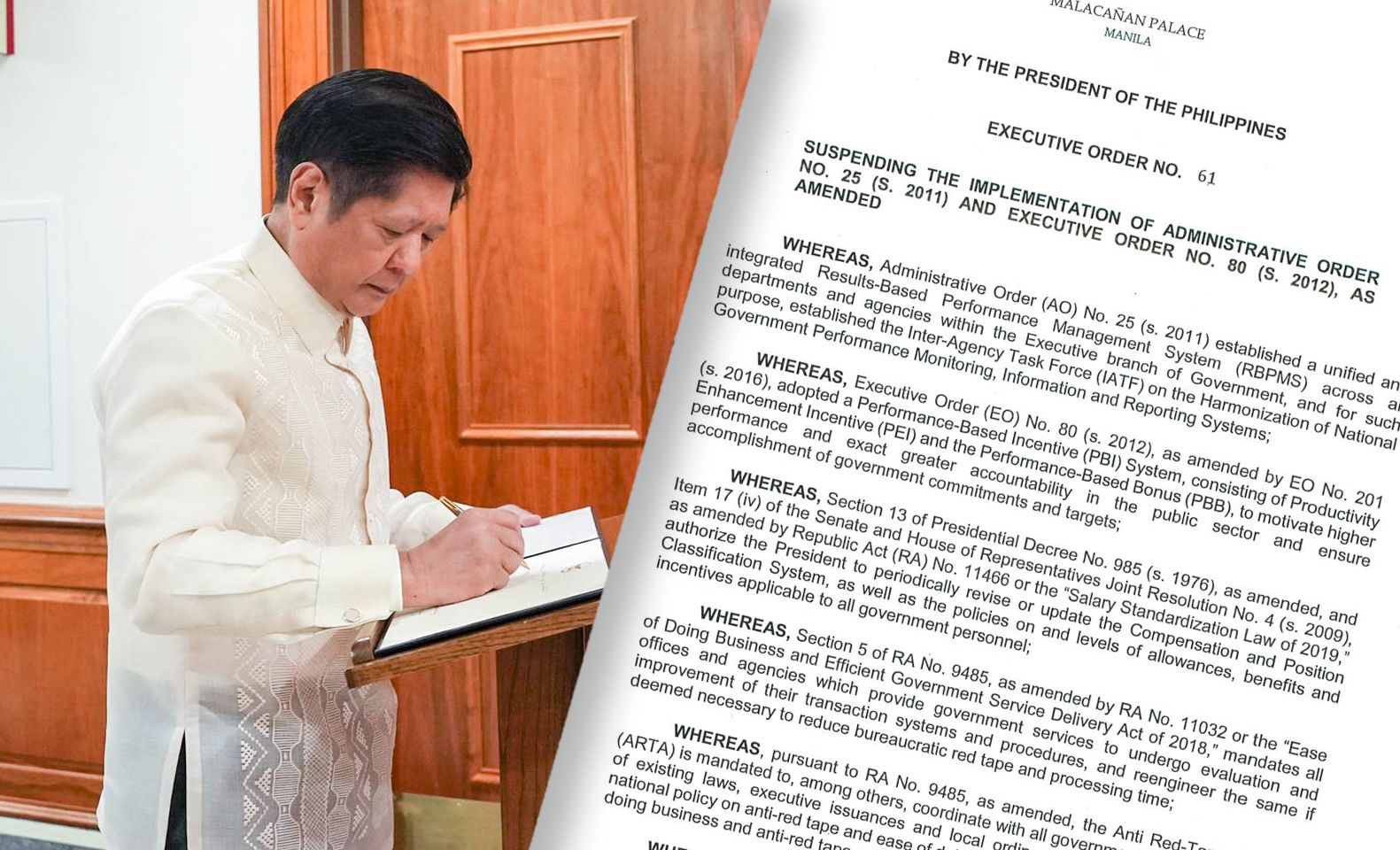Marcos issues EO to streamline gov't's performance evaluation systems
At A Glance
- President Marcos said the RBPMS and PBI System have been duplicative and redundant with the government's internal and external performance audit and evaluation systems.
President Marcos has issued an executive order (EO) to streamline and harmonize the Results-Based Performance Management System (RBPMS) and Performance-Based Incentive (PBI) System in government.

Executive Secretary Lucas Bersamin signed EO No. 61 on June 3. It suspends the implementation of Administrative Order (AO) No. 25 (s. 2011) and EO No. 80 (s. 2012), and all other relevant issuances.
AO No. 25 (s. 2011) established a unified and integrated RBPMS across all departments and agencies within the Executive branch of government. While EO No. 80 (s. 2012) adopted a PBI System, consisting of a Productivity Enhancement Incentive (PEI) and the Performance-Based Bonus (PBB), to motivate higher performance and exact greater accountability in the public sector and ensure the accomplishment of government commitments and targets.
In his EO, President Marcos said the RBPMS and PBI System have been duplicative and redundant with the government's internal and external performance audit and evaluation systems. It also lacked a review mechanism leading to the accumulation of rules, regulations, and issuances from the Inter-Agency Task Force (IATF) on the Harmonization of National Government Performance Monitoring, Information, and Reporting Systems.
It makes compliance burdensome, bureaucratic, laborious, and time-consuming for government agencies, the EO furthered.
"It is imperative to streamline, align and harmonize the RBPMS and PBI System with ease of doing business initiatives, and reform the government performance evaluation process and incentives system towards a more responsive, efficient, agile and competent bureaucracy," the order read.
Based on the President’s EO, a Technical Working Group (TWG) for the study and review of the RBPMS and PBI System will be constituted.
The TWG will be chaired by the Budget secretary and the Executive Secretary as co-chair. The members will be the Finance secretary, the National Economic and Development Authority (NEDA) secretary, and the Anti-Red Tape Authority (ARTA) director-general.
The TWG shall integrate, streamline, and align the new government performance management system with the government internal audit program and activities pursuant to the “Internal Auditing Act of 1962,” and government quality management systems under AO No. 161 (s. 2006) and EO No. 605 (s. 2007).
It shall submit a comprehensive report on its findings together with its recommendations to the Office of the President, through the Office of the Executive Secretary, within six months after the EO takes effect.
The TWG is also tasked to submit a transition plan for the grant of PBB for Fiscal Year 2023 within three months from the effectivity of the order.
The Philippine Development Plan 2023-2028 and the Administration’s 8-Point Socioeconomic Agenda aim to institute good governance practices and improve bureaucratic efficiency.